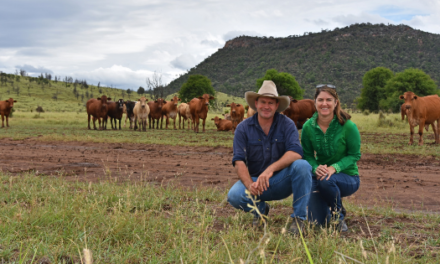The advice from families with positive outcomes from their successful succession planning negotiations is reassuring as it shows what is possible. Investing the time and effort and showing commitment even when things get uncomfortable demonstrates that the right attitude produces good results.
Overall, the recommended strategies include a lot of common sense, which can sometimes get lost when emotions take over but are worth reviewing to assist the process.
Start early
The sooner the wishes of the older generation and hopes of the younger generations are known to each other the reality of achieving a satisfactory outcome is possible.
Early discussions protect relationships because it can address the issue of financial security a lot sooner.
If an older generation is financially unable to leave the property to the younger generation without significant debt then every party should be made aware of the situation.
It takes time to identify possible management strategies and become educated with regards to the possible future options for a farming business.
The sooner all members of the business are committed to the same outcome then the more productive and effective future communications and planning can be for everyone.
Communicate openly
A round-table discussion that includes all stakeholders is the ideal situation for discussing the future plans for a rural business.
Casual paddock chats are great but if someone is missing from the discussion then the understanding of the intentions or wishes of one of the parties can be misinterpreted when the information is relayed.
As formal as it sounds, at some point a meeting that is documented with the notes distributed for confirmation is a great starting point. By sitting down and discussing the future in a structured manner family members are more likely to believe there is a genuine commitment to a unified outcome.
Progress may be slow and some ground rules should be set before the discussions begin. It is important that each participant feels that their opinions can be expressed and their viewpoint listened to as opposed to assumptions being made.
It is also important to understand that different people have different values, beliefs and communication styles and at times an individual will benefit from modifying their communication method to better accommodate another person’s style of communicating and receiving information.
Depending on the family circumstance, it may be necessary to engage the services of a mediation specialist, and for some families this may be money well spent.
Do not stereotype
Every daughter-in-law knows the story of the elderly parents who signed the property over to their son who then died leaving the daughter-in-law in control of the farm assets. The daughter-in-law then sold everything and the elderly parents were left homeless.
There is also the story of the son-in-law who was paid out half the property value during a divorce which meant the family could not afford to keep the property.
For in-laws who feel these scenarios are a real fear for them and a blockage in terms of moving forward then they need to acknowledge this fear. Such stories however, may identify a fear and should be shared as an example but not used as an excuse not to start succession planning.
There are professional advisers, lawyers and accountants who specialise in assisting families achieve positive succession planning outcomes. Blood-line wills, specific clauses in agreements and other legal documents can be written to protect assets and ensure peace of mind.
Ask quality questions
Quite often a person’s worst fears can be addressed simply by asking the right questions.
If the older generation want to ensure they can stay in their own home for as long as they desire but fear that could change if they sign over their share of the rural property, then that stipulation can be legally documented and peace of mind assured.
The expectations of all family members should be sought because the assumptions could be very different from the reality. A straight-forward question could be enough to validate that family member’s feeling of self worth simply because it was asked.
If there are several properties to be distributed between siblings then it is worth identifying which sibling prefers which property or asset, as the answers may be surprising. It is the job then of the legal experts to address any legal concerns and ensure a reasonable outcome can be obtained.
Working together to identify at what position the business would be considered financially able to distribute the assets is highly recommended.
Quality questions need to be asked and the real financial position of the business known to all family members as future plans need to be realistic and achieveable.
Seek out accurate information
Everyone has a well-meaning friend or neighbour who can offer advice and tell you what you should be doing, and these are essential support people to have around.
If the information is to be relied upon to enforce a viewpoint or state a fact however, it is imperative to check with the original source of the information prior to including the details in business conversations.
Given the emotional issues involved, it is much better to ensure the information being presented is factual, as misguided or inaccurate information can further erode relationships, particularly in the areas of credibility and trust.
Understand the different perspective
Given the high emotional and financial stakes involved in any succession planning process it is sometimes hard to fully understand another person’s position.
Future financial security is a key need for most retiring farmers and sometimes when such a pressing need is at the forefront of a person’s thinking, it is hard to consider the opinion of another person.
The perceived feeling of not being in control of your own life or the future of your family weighs heavily on the minds of the younger generation of farmers.
Financial security and the farm’s viability can only be addressed through discussions. When family members can consider without judgement the viewpoint of others and then incorporate this acknowledgement in their negotiations then positive outcomes are possible.





